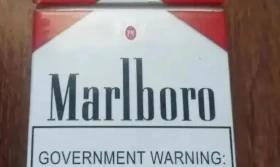Tobacco Promotes Nasal Polyp Growth Rate After Surgery
Introduction
Nasal polyps are benign growths that develop in the nasal cavity or sinuses, often causing chronic inflammation, nasal obstruction, and reduced quality of life. Surgical removal, known as polypectomy or functional endoscopic sinus surgery (FESS), is a common treatment for severe cases. However, recurrence remains a significant challenge, with studies suggesting that lifestyle factors, particularly tobacco use, may accelerate polyp regrowth. This article explores the relationship between tobacco consumption and the increased growth rate of nasal polyps post-surgery, examining underlying mechanisms and clinical implications.
The Link Between Tobacco and Nasal Polyp Recurrence
1. Inflammatory Response and Mucosal Damage
Tobacco smoke contains numerous harmful chemicals, including nicotine, tar, and formaldehyde, which irritate the nasal mucosa. Chronic exposure leads to:
- Increased inflammation: Tobacco smoke triggers the release of pro-inflammatory cytokines (e.g., IL-6, TNF-α), worsening mucosal swelling.
- Impaired ciliary function: The cilia in the nasal passages help clear mucus and pathogens. Smoking damages these structures, leading to mucus stagnation and bacterial colonization.
- Delayed healing: Post-surgery, tobacco smoke slows tissue repair, increasing susceptibility to polyp regrowth.
2. Immune System Suppression
Smoking weakens the immune system, reducing the body’s ability to control inflammation. Key effects include:
- Reduced IgA secretion: Immunoglobulin A (IgA) protects mucosal surfaces; smoking lowers its levels, increasing infection risk.
- Altered neutrophil activity: Neutrophils, crucial for fighting infections, become less effective in smokers, prolonging inflammation.
3. Oxidative Stress and Tissue Remodeling
Tobacco smoke generates reactive oxygen species (ROS), contributing to oxidative stress, which:
- Promotes abnormal cell proliferation: ROS damage DNA, increasing the likelihood of polyp reformation.
- Stimulates fibrosis: Excessive collagen deposition alters tissue structure, making polyps more likely to recur.
Clinical Evidence Supporting the Connection
Several studies highlight the impact of smoking on nasal polyp recurrence:
- A 2018 study in The Laryngoscope found that smokers had a 40% higher recurrence rate within two years post-surgery compared to non-smokers.
- Research in Rhinology (2020) showed that secondhand smoke exposure also increased polyp regrowth, suggesting environmental tobacco smoke is a risk factor.
- A meta-analysis in Otolaryngology–Head and Neck Surgery (2021) concluded that smoking cessation significantly reduced polyp recurrence rates.
Mechanisms Behind Tobacco-Induced Polyp Growth
1. Epithelial Barrier Dysfunction
Tobacco smoke disrupts tight junctions between epithelial cells, allowing allergens and pathogens to penetrate deeper into tissues, perpetuating inflammation.
2. Upregulation of Growth Factors
Smoking increases vascular endothelial growth factor (VEGF) and transforming growth factor-beta (TGF-β), both of which promote polyp formation by:
- Enhancing blood vessel formation: VEGF supports polyp vascularization, aiding their growth.
- Stimulating fibroblast activity: TGF-β encourages extracellular matrix deposition, contributing to polyp bulk.
3. Microbiome Alterations
Smoking changes the sinonasal microbiome, fostering pathogenic bacteria like Staphylococcus aureus, which exacerbates chronic rhinosinusitis with nasal polyps (CRSwNP).
Preventive Strategies for Smokers
Given the strong association between tobacco and polyp recurrence, patients should:
- Quit smoking before surgery: Studies show that cessation at least 4 weeks prior reduces complications.
- Avoid secondhand smoke: Even passive exposure worsens outcomes.
- Follow post-operative care rigorously: Saline irrigation, corticosteroids, and regular follow-ups are crucial.
Conclusion
Tobacco use significantly accelerates nasal polyp regrowth after surgery by promoting inflammation, impairing immunity, and inducing oxidative stress. Patients undergoing nasal polyp surgery should be strongly advised to quit smoking to minimize recurrence risks. Further research is needed to explore targeted therapies for smokers with chronic rhinosinusitis, but current evidence underscores the importance of tobacco cessation in improving surgical outcomes.
Key Takeaways
- Smoking increases nasal polyp recurrence by worsening inflammation and delaying healing.
- Secondhand smoke exposure is also a risk factor.
- Quitting smoking before surgery improves long-term results.
- Post-operative care (steroids, saline rinses) is essential for smokers.
By understanding and addressing the role of tobacco in nasal polyp recurrence, clinicians can enhance treatment success and patient quality of life.










